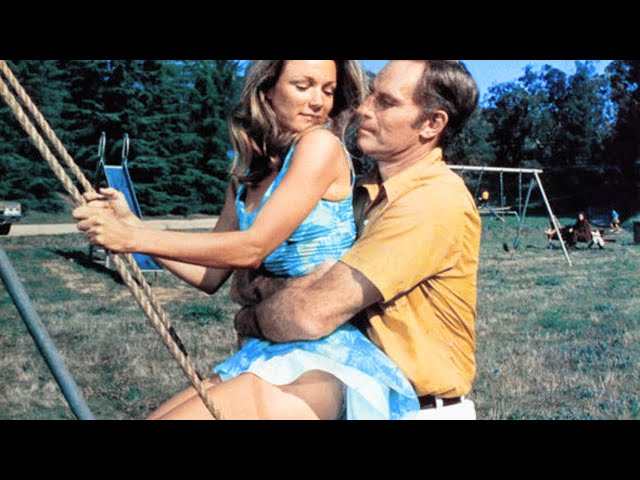Charlton Heston, a name synonymous with Hollywood’s golden era, left an indelible mark on both the silver screen and the political landscape. Renowned for his portrayal of strong and uncompromising characters, Heston’s cinematic legacy endures alongside his controversial political affiliations.
Born John Charles Carter in 1923 during the Great Depression, Heston’s early years were marked by hardship and resilience. Raised in Michigan and later Illinois, he developed a steely determination shaped by the struggles of a working-class family.
Heston’s journey into fame began with his service in the Second World War, where he witnessed the harsh realities of combat. His military experience instilled in him a sense of duty and patriotism that would shape his future endeavors.
Returning to civilian life, Heston pursued his passion for acting, making his mark on Broadway and later transitioning to the silver screen. His iconic roles in films such as “The Ten Commandments” and “Ben-Hur” propelled him to stardom, earning him accolades and acclaim.
Beyond his cinematic achievements, Heston was a vocal advocate for social justice. In an era marked by racial tensions, he openly supported the civil rights movement and used his platform to speak out against discrimination.
However, Heston’s legacy is not without controversy. In later years, he aligned himself with conservative Republican values and became a staunch advocate for gun rights. His leadership of the National Rifle Association (NRA) and impassioned defense of the Second Amendment made him a polarizing figure in American politics.
Despite his political views, Heston remained dedicated to his craft, exploring diverse roles across film, television, and theater. His versatility as an actor was matched only by his unwavering commitment to his beliefs.
In his personal life, Heston found solace in his marriage to Lydia Marie Clarke, enduring challenges with resilience and devotion. Despite facing health setbacks and political scrutiny, he remained steadfast in his convictions until his passing in 2008.
Charlton Heston’s legacy is complex, reflecting the dichotomy of a man who excelled on both stage and screen while engaging in contentious political discourse. His contributions to cinema and advocacy for causes he believed in continue to spark debate and inspire audiences worldwide.
In the end, Charlton Heston’s enduring legacy serves as a reminder of the power of art to provoke thought and challenge conventions, transcending the boundaries of time and ideology.
WATCH THE VIDEO HERE
NO COPYRIGHT INTENDED (ALL RIGHTS RESERVED TO THE AUTHOR OF THE VIDEO)
